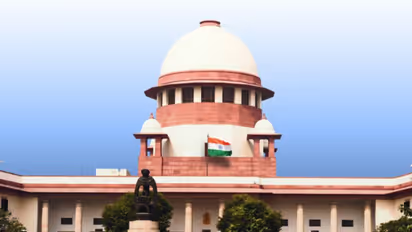BREAKING: SC allows States to recover mining royalty dues from Centre, mining firms

Synopsis
The Supreme Court of India has authorized states to recover unpaid mineral royalties dating back to April 1, 2005, to be collected over 12 years starting April 1, 2026. The ruling clarifies that these royalties are contractual obligations, not taxes, and overturns a 1989 decision.
The Supreme Court of India on Wednesday granted states the authority to recover outstanding royalty payments for minerals from both the Central Government and mining companies dating back to April 1, 2005. This decision enables mineral-rich states to collect these dues in a staggered manner over the next 12 years.
On July 25, a nine-judge Bench of the Supreme Court ruled that state governments have the authority to impose taxes on mining activities. The Court’s recent clarification states that this ruling will be applied retrospectively, but it only affects transactions from April 1, 2005.
Politics over Hindenburg SEBI chief allegations: Oppn demand JPC probe, BJP slams 'Balak Buddhi' Rahul Gandhi
This decision represents a significant financial boon for states with mineral resources. The Supreme Court's ruling means that states are entitled to recover overdue taxes and royalties from mining activities dating back to 2005. However, these arrears will be collected over 12 years starting April 1, 2026. Importantly, the Court has specified that no penalties or interest will be applied to these past dues.
Delhi CM Kejriwal moves SC challenging arrest by CBI in connection with excise policy case
The Supreme Court also reaffirmed that the royalty paid to the Centre by mining firms is not a tax but a contractual obligation. This decision overturned a 1989 ruling that had classified such royalties as a tax. According to the Court, the Central Act of 1957, which governs mining regulations, does not restrict the states' authority to levy taxes on mineral-bearing land.
The nine-judge Bench, led by Chief Justice of India DY Chandrachud, with Justices Hrishikesh Roy, Abhay S Oka, BV Nagarathna, JB Pardiwala, Manoj Misra, Ujjal Bhuyan, Satish Chandra Sharma, and Augustine George Masih, delivered the verdict. Justice Nagarathna, who had previously dissented on the July 25 judgment, did not sign the latest order.
Stay updated with the Breaking News Today and Latest News from across India and around the world. Get real-time updates, in-depth analysis, and comprehensive coverage of India News, World News, Indian Defence News, Kerala News, and Karnataka News. From politics to current affairs, follow every major story as it unfolds. Get real-time updates from IMD on major cities weather forecasts, including Rain alerts, Cyclone warnings, and temperature trends. Download the Asianet News Official App from the Android Play Store and iPhone App Store for accurate and timely news updates anytime, anywhere.